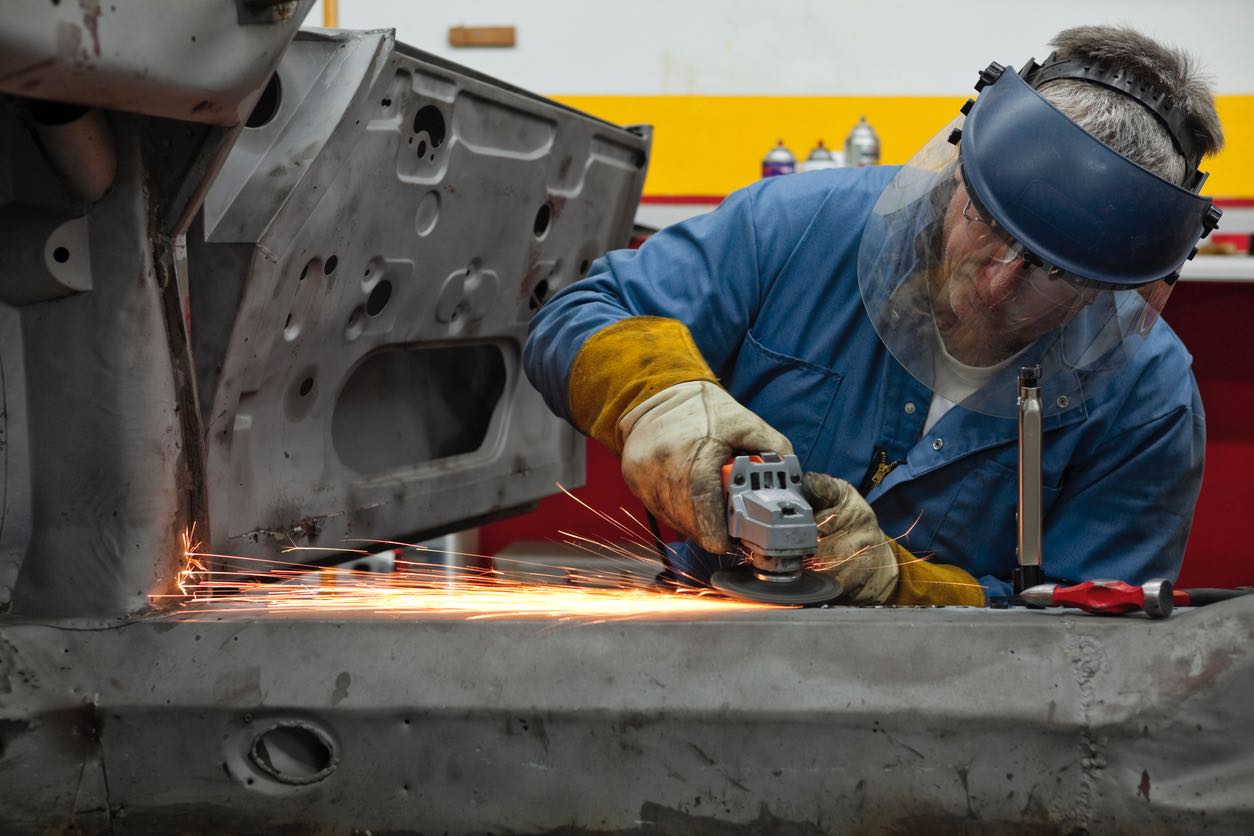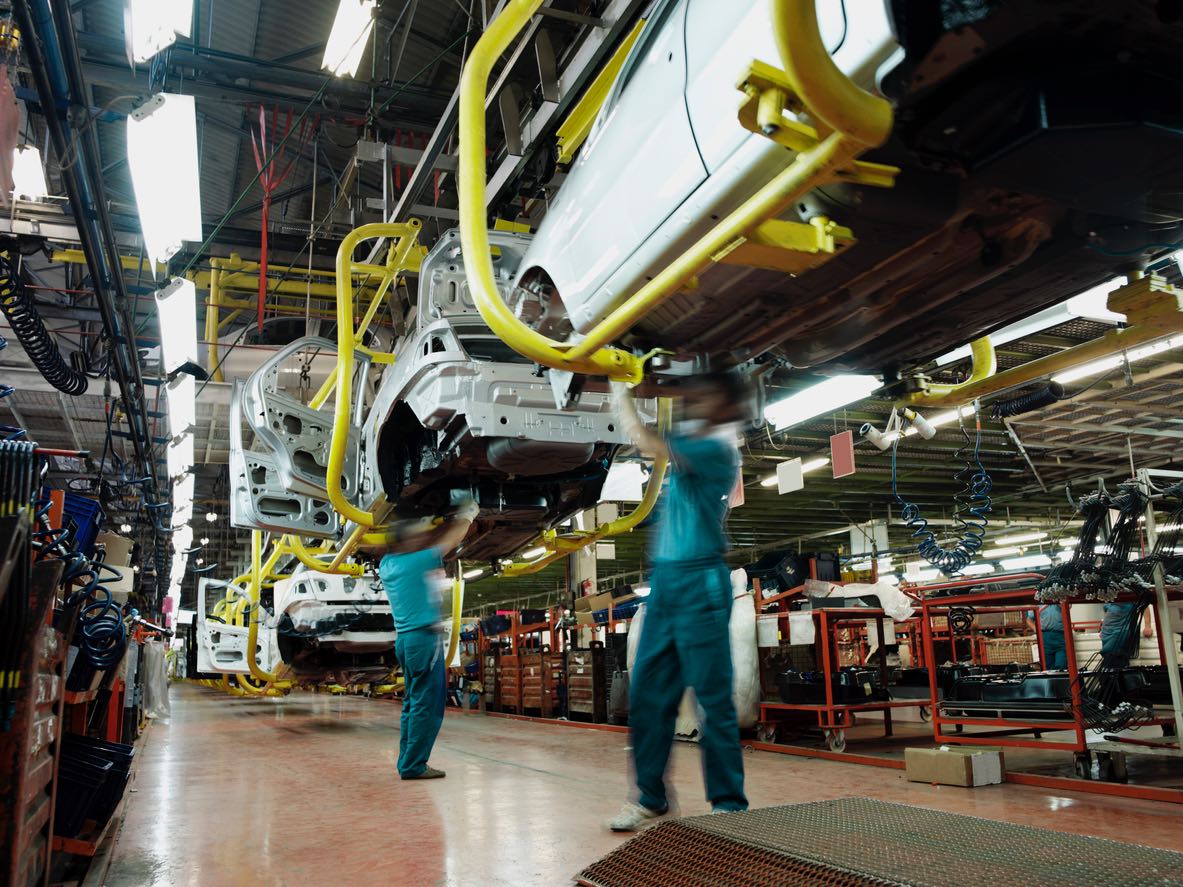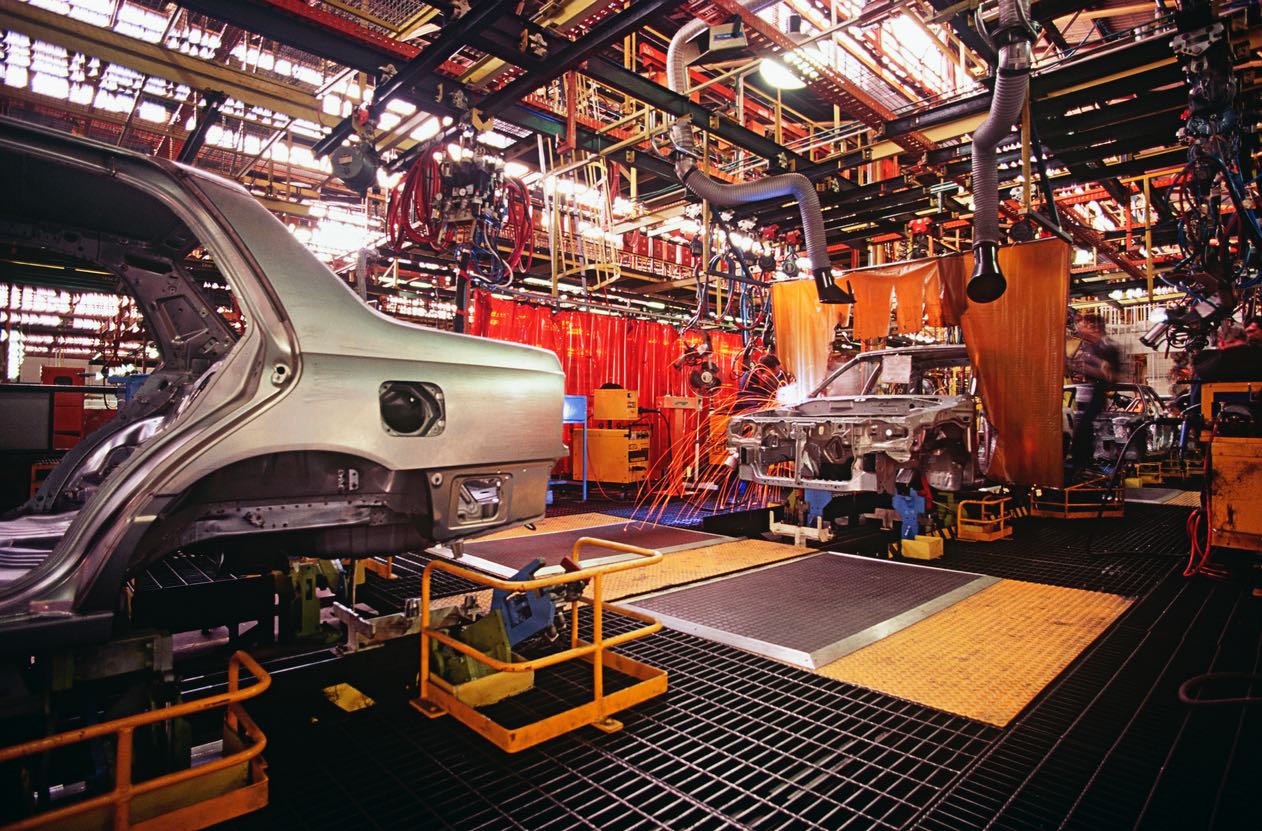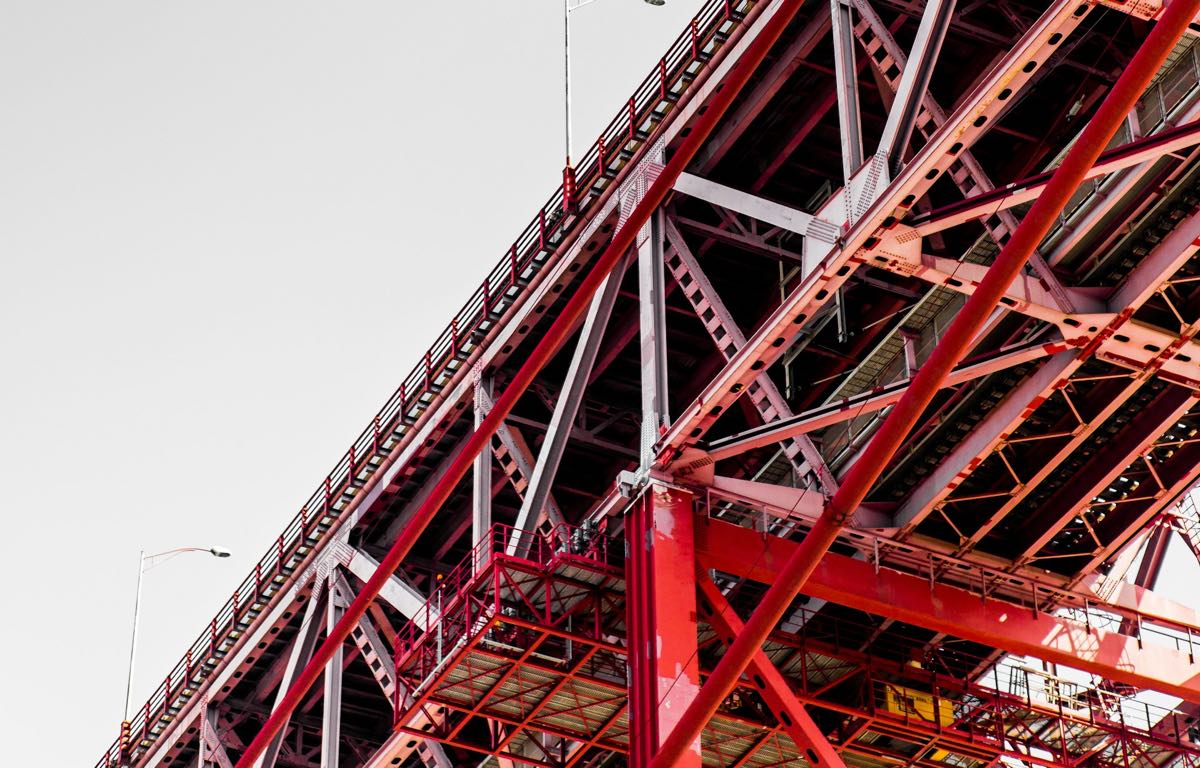The United Auto Workers (UAW) strike, which began on September 15th, 2023, has grown into a significant event not just in the records of labor history but also in the broader narrative of the American auto industry. The strike began by focusing on one assembly plant from each of the major automakers, but by the end of the month, it had spread to 38 GM and Stellantis parts distribution sites. A central question on the minds of many is this: Why are the union members taking such drastic measures, especially when they are paid only $500 a week from the union’s strike fund? Yet as usual, there are several layers, intricate details, and underlying structural and economic problems behind the explanations.
At the heart of the UAW’s demands are concerns that reverberate with workers throughout the United States, including the gradual loss of the purchasing power of wages in the face of inflation, disparities in benefits and compensation, and the long-lasting impact of the 2008 financial crisis. Simmering resentment has surfaced as a result of the pandemic, seismic shifts in industry technology, and rising living expenses. While Detroit’s auto makers have seen their profit margins surge, lower-ranking members of the UAW assert that the wages they receive has failed to maintain pace. Executive salaries have skyrocketed, while many workers on the manufacturing floor struggle with a tiered pay structure that pushes recent hires into a lesser pay band with fewer perks. The union’s demands to remove this tiered employment structure and restore regular cost-of-living increases underscore the larger fight for economic justice and job security in a time of fast change. As you read the following blog post further, you’ll learn more about Ford, a major player in the industry facing these kinds of never-before-seen difficulties, as well as the viewpoint of the UAW.

The leader of Ford Motor Co., Bill Ford, has pleaded with the United Auto Workers (UAW) union amid an ever-evolving automotive industry landscape. His passionate speech is focused on three main points: unity, Ford’s legacy, and the direct effects of the current strike on the business and its employees. Explore the specifics below to learn about the entwined tales of Ford’s longstanding commitment to its employees and the wider ramifications of the ongoing labor dispute.
Bill Ford: Champion of UAW’s Growth and the Ford Legacy: As he takes the stage, Bill Ford is more than simply an executive—he is the great-grandson of the company’s illustrious founder, Henry Ford. This prominent lineage carries with it an innate obligation and dedication to the very labor force that has established the brand. His leadership has been exceptional in the auto industry over the past 15 years; Ford is still the only automaker to increase its workforce by hiring UAW workers. This deliberate choice, despite the financial consequences that come with it, is consistent with Ford’s resolute conviction in developing a mutually beneficial and strong collaboration with its employees.
The Domino Effect of the UAW Strike on Ford’s Workforce: Bill Ford highlights the striking ramifications of the UAW strike throughout Ford’s extensive operations by painting a vivid picture of the immediate aftermath. A startling 19,000 people are unemployed as a result of the severe interruption in production lines; many are on strike, and there are still more who risk being laid off. Grasping the seriousness of the situation, Bill Ford does a lot more than quantify the impact; he resonates with the importance of resolving the ongoing conflict, emphasizing the need to move past this turbulent phase and refocus on collective growth and industry leadership.

Few businesses in American industrial history have demonstrated a more unwavering dedication to national concerns than Ford. Executive Chair Bill Ford recently emphasized how the manufacturer has continuously provided support during times of national need. Ford’s commitment highlights a deeply held conviction that a robust manufacturing base is essential for the country’s security, not simply for profit. This view has been demonstrated by the company’s assistance during wartime and its adaptation of production lines during global crises like the COVID-19 pandemic.
War Efforts and Pandemic Pivots: Looking back at Ford’s remarkable history, it becomes clear that they have made contributions that go well beyond cars. Ford was a key player during crucial wartime eras, producing everything from boats to tank components. The current COVID-19 outbreak provided yet another example of their flexibility. Ford quickly modified its manufacturing lines to provide essential personal protective equipment as the globe struggled with the crisis. Bill Ford emphasized these efforts, which confirm the company’s belief that a thriving manufacturing sector is critical to the security of the country.
The Significance of American Manufacturing: The concept of manufacturing in the United States has been an integral part of Ford’s DNA. Despite a turbulent political and economic climate, Ford is steadfast in its commitment to building in the United States. Bill Ford said, “Building things in America matters now more than ever,” with much enthusiasm. This is a monument to Ford’s 120-year history, not merely a financial move. Ford’s advocacy of home production assures that the flame of American workmanship never goes out while simultaneously boosting local economies and communities.

Beneath the surface of the UAW strike, there is another story going on: the struggle for dominance in the automotive industry. Foreign rivals are alert and prepared to take advantage of openings in the middle of the turmoil, while Detroit’s Big Three are feeling the heat. The article looks into the strike’s underlying dynamics, examining how rivals can profit and what it means for Ford and the larger US auto industry.
How Rivals Are Poised to Capitalize: Regarding the possible winners of the current UAW strike, Bill Ford was straightforward. Competitors not affiliated with the UAW, such as the dominant players of the industry Toyota, Honda, and Tesla, may perceive this as a fantastic chance to gain an advantage. Ford’s concerning remark, “They will win and all of us will lose,” is indicative of the larger difficulties the American car industry faces in addition to his worry for his business. It’s possible that during labor conflicts, innovation and customer-centric tactics would take a backseat, giving rivals a stronger footing in the market.
Ford’s Crucial Crossroads – What Lies Ahead: The ongoing dispute between Ford and the UAW is a wake-up call for everyone in the American auto industry, not just for the company itself. Bill Ford is focusing on the greater conflict between American automakers and their international competitors rather than the tensions that exist between his company and the union. Any pause in forward motion, whether brought on by internal conflicts or external circumstances, can have a domino effect. Companies like Ford may suffer more than simply a decline in market share if they are unable to act quickly to solve these issues and carry on innovating. Communities may experience financial hardship, investments may decline, and there may be an unfavorable trend of job losses in the sector. The course that Ford chooses in this high-stakes game will not only determine its own fate, but it may also affect the future of the US automotive industry.

The UAW President, Shawn Fain, took center stage in the developing story of the walkout to provide an emotionally charged rebuttal to Bill Ford’s recent remarks. Fain’s response, which pits the central topic of workers’ rights against corporate greed, provides a prism through which we may see the greater forces at work in the car industry. It is critical to examine Fain’s position in further detail in order to see the wider ramifications for Ford and the UAW as this conflict of viewpoints continues.
Shawn Fain’s Defiant Response to Bill Ford’s Remarks: Bill Ford’s remarks reaffirmed the company’s commitment to corporate sustainability and its long-standing collaboration with the UAW, but Shawn Fain quickly steered the discussion back to the main points of contention. Drawing attention to the problem of “corporate greed,” Fain emphasized the widening gap between CEO pay and stagnating salaries for workers. He asked Ford to go past empty words and implement concrete measures to guarantee fair pay for all employees.
A Broader Vision for the UAW’s Future: In addition to the current demands and the strike, Fain’s comments alluded to a more inclusive vision for the UAW. He stressed that employees of rival automakers—such as Toyota and Tesla—are potential friends rather than enemies. This declaration reflects the UAW’s intention to grow, maybe attracting members from non-unionized facilities, and to guarantee that the welfare and rights of auto workers are widely supported.
The Challenge of “All-American” Wages: One of the most striking aspects of Fain’s response was the challenge that was thrown at Ford to truly embody the spirit of a “all-American” company. In doing so, Fain said that Ford need to provide pay and benefits befitting with the status of a leading American corporation. This is a wake-up call for Ford and other automakers to make sure that their pay plans align with the standards and ideals of the American labor force.

The notable distinctions between union developments in the United States and Canada in the dynamic field of labor relations are fascinating. Canada offers a more peaceful atmosphere as the UAW strike rages on in the US, depicting unsolved disagreements and deep-seated resentment. Examining this contrast offers perceptions into labor agreements, industry practices, and local factors that influence the automotive world.
The UAW Strike’s Shadows in the U.S.: The UAW strike that is now taking place in the United States has garnered significant media attention and sparked conversations about fair pay, worker rights, and industry practices. The walkout, which has its roots in long-standing concerns such as pay inequality and employment tier systems, represents the profound divide that exists between the car industry’s workforce and its employers. The events that are transpiring have highlighted the significant obstacles that auto workers must overcome in an industry that is changing quickly.
A Peaceful Resolution in Canada: Unlike its neighbor to the south, Canada recently saw the peaceful conclusion of labor talks. An important development in labor relations has occurred as the nation’s employees of General Motors and Ford have signed their respective labor contracts. This happy ending not only illustrates the possibilities for constructive communication and settlement, but also the maturity and understanding that exist between Canadian autoworkers and their employers.
With these advancements, the story of the automobile industry keeps changing, exposing the complex interactions between local dynamics, corporate rules, and employees’ goals.

Ford, a symbol of excellence in American automobile manufacturing, is reaching a turning point in its history as the UAW strike gains pace. Bill Ford’s fervent appeal highlights the fact that the choices made in the next days will not only determine Ford’s future, but will also have a substantial impact on the American auto industry as a whole. These decisions have far-reaching implications in light of the changing global automobile landscape.
Amid these circumstances, competitors are watching closely, poised to capitalize on any missteps. A critical test is being put to the core of American car production, and the decisions taken will either strengthen the industry’s position or signal a change in the global automobile industry’s supremacy. It is highly recommended that readers, fans, and stakeholders remain informed, as the course of American automotive history is being shaped in real time.

In a time where reliability is rare, Ship A Car, Inc. stands out as an example of trustworthiness and efficiency in the vehicle transportation industry. Your peace of mind is our first priority; we do more than simply ship cars. We are here to make sure you have a smooth journey whether you are navigating the turbulent seas of the UAW strike or the complexities of transferring vintage car models.
Our wide-ranging, carefully screened network of carriers ensures smooth transports from coast to coast throughout the United States. Selecting Ship A Car means selecting excellence, expertise, and an unmatched commitment to safeguarding the integrity of your car. Regardless of whether you’re a private car owner or an established dealership, we cater to every transportation need with the utmost precision and care. Get started now and discover the gold standard in vehicle shipping!
- What is the crux of Bill Ford’s message regarding the UAW strike? Bill Ford is calling an end to the continuing strike by the United Auto Workers (UAW), highlighting the need of mutual growth and warning of the possible advantage that non-union competitors may acquire during this time.
- How has the strike affected Ford’s operations? Roughly 19,000 workers have been impacted in some way as a result of the strike, whether it be through direct involvement in the strike itself or by layoffs caused by production disruptions.
- Why should one opt for Ship A Car, Inc. during these uncertain times? Ship A Car, Inc. provides a dependable and comprehensive network of carriers that are always ready to transport vehicles regardless of the obstacles faced by the automotive industry. This ensures that the company provides constant service throughout the United States.




